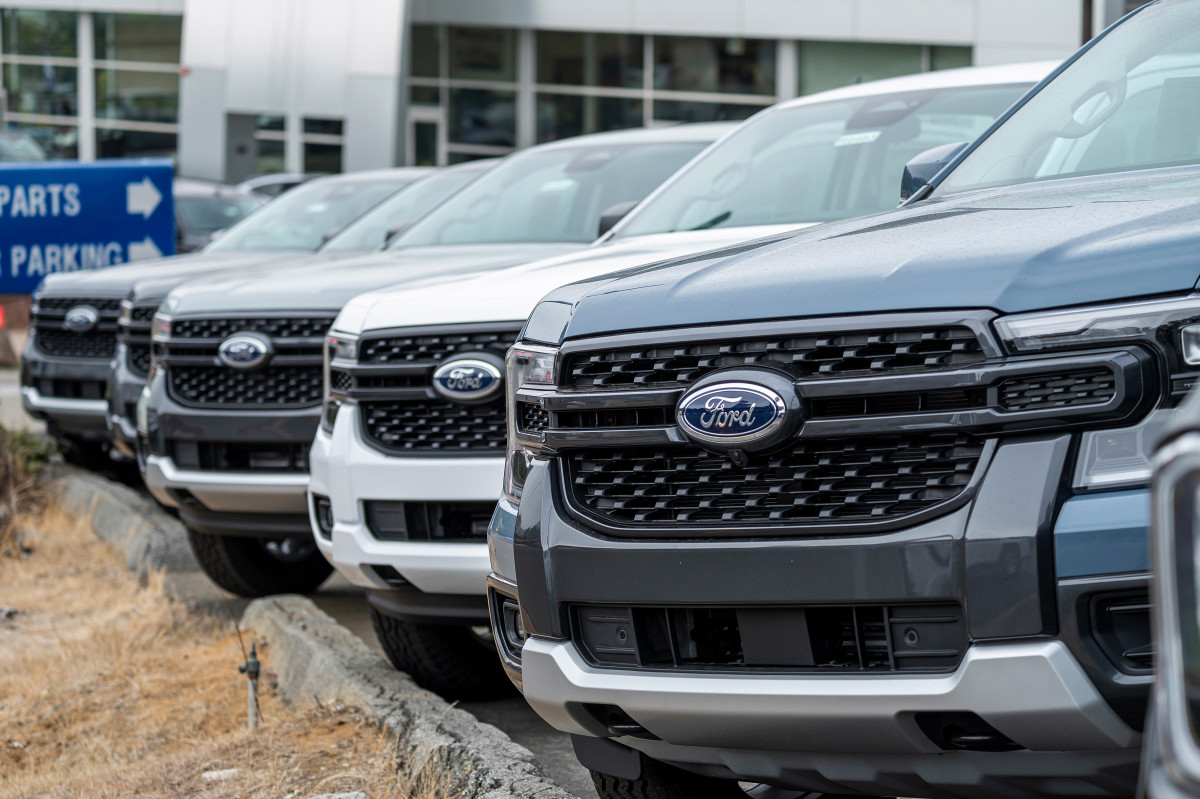
If you have been to your local dealership, snooped around on websites, or even curiously looked at the latest and greatest cars from any auto manufacturer lately, you are probably more than aware that new cars are very expensive.
💰💸 Don’t miss the move: SIGN UP for TheStreet’s FREE Daily newsletter 💰💸
Though many options are available for thousands less, the latest data from Kelley Blue Book says that the average new car in the U.S. cost consumers $48,397 in September 2024. They project that prices will drop due to shifting buyer behaviors toward cheaper, smaller cars and increased dealer inventories.
But while it may seem like the tide is turning in favor of new car buyers, a new study reveals that a considerable number of buyers themselves might be in for a shock at the dealership.

Auto data suggests that new car buyers beware
According to a new study from Edmunds, many Americans who took out car loans to pay for their new cars are being weighed down with negative equity; owing way more to the bank than the list values of the vehicles they shelled out for, with many owing as much as $15,000 more than their values.
Related: Honda's most popular cars are facing yet another massive recall
Having negative equity on a car loan can present a problem for buyers who seek to trade in their current cars, as they will often be on the hook for that difference. Edmunds' numbers show a dramatic increase in the number of American car owners with negative equity on their car loans when it came to trading in their "old" rides, from 23.9% in Q2 2024 to 24.2% in Q3 2024.
In Q2 2023, the percentage of negative equity trade-in buyers was just 18.5%, but the share of buyers is not the only statistic that grew.
More Automotive:
- Hurricanes flooded 350,000 cars this year. Now they’re heading to the used car market.
- These parents shun Uber for Waymo for a built-in safety feature
- Distressed luxury sportscar maker files Chapter 11 bankruptcy
The dollar amount of negative equity buyers owed on their owns has increased from $6,255 in Q2 this year to $6,458 in Q3, compared to just $5,808 in Q3 2023. Though $6,458 seems meager, the proportion of owners who owe more than the average is shocking. About 22% of buyers with negative equity on the table owe more than $10,000 on their car loans, with 7.5% of total buyers owing more than $15,000.
The experts at the car-buying website identified the root of the negative equity problem as stemming from a combination of buyers' poor financial planning and terrible market conditions when most of these people bought their cars.
Many of the buyers they encountered bought their cars during the chip shortage during the COVID-19 pandemic, which reduced inventories and inflated prices at dealerships—which, unfortunately, many paid for by taking out a car loan.
Additionally, many buyers are taking out longer and longer-term loans and returning to the dealer for new models way too soon. Longer loans, including those longer than 72 months, can dramatically increase the odds of having negative equity payments that may not have caught up with depreciation.
Related: New car buyers are opting for insane loans to cover high prices
Experts say: Drive and maintain your cars and don't get tempted by new ones.
Experts at Edmunds say that the negative equity fiasco is not limited to those who drive luxury vehicles notorious for their depreciation, such as Mercedes-Benz, BMW, or Maserati, and affects buyers who are looking at all types of cars, including pickup trucks and SUVs.
Ivan Drury, Edmunds' director of insights, advises that buyers who are worried about getting into negative equity should have a plan. Drury recommends that buyers anticipate holding onto their vehicles as long as they can while keeping up with regular, routine maintenance like oil changes and tire rotation to avoid drops in value that can be easily avoided.
"With prices and interest rates being as high as they are, it's critical for consumers to think beyond the monthly payment and be honest with themselves about their ownership habits. A seven-year auto loan is a one-way ticket to negative equity if you know you're not the type of person to keep a vehicle for that long," said Drury.
"Shop around for incentives and lower APR financing, though be mindful those are less common offerings in today's market. Consider vehicles proven to have higher resale values, or ones that offer other financial benefits like better mpg or lower insurance costs. But most importantly: Find a car you really want and like, because if you don't you'll probably end up making the same mistake of trading in your newish vehicle too soon."
Related: Veteran fund manager sees world of pain coming for stocks







